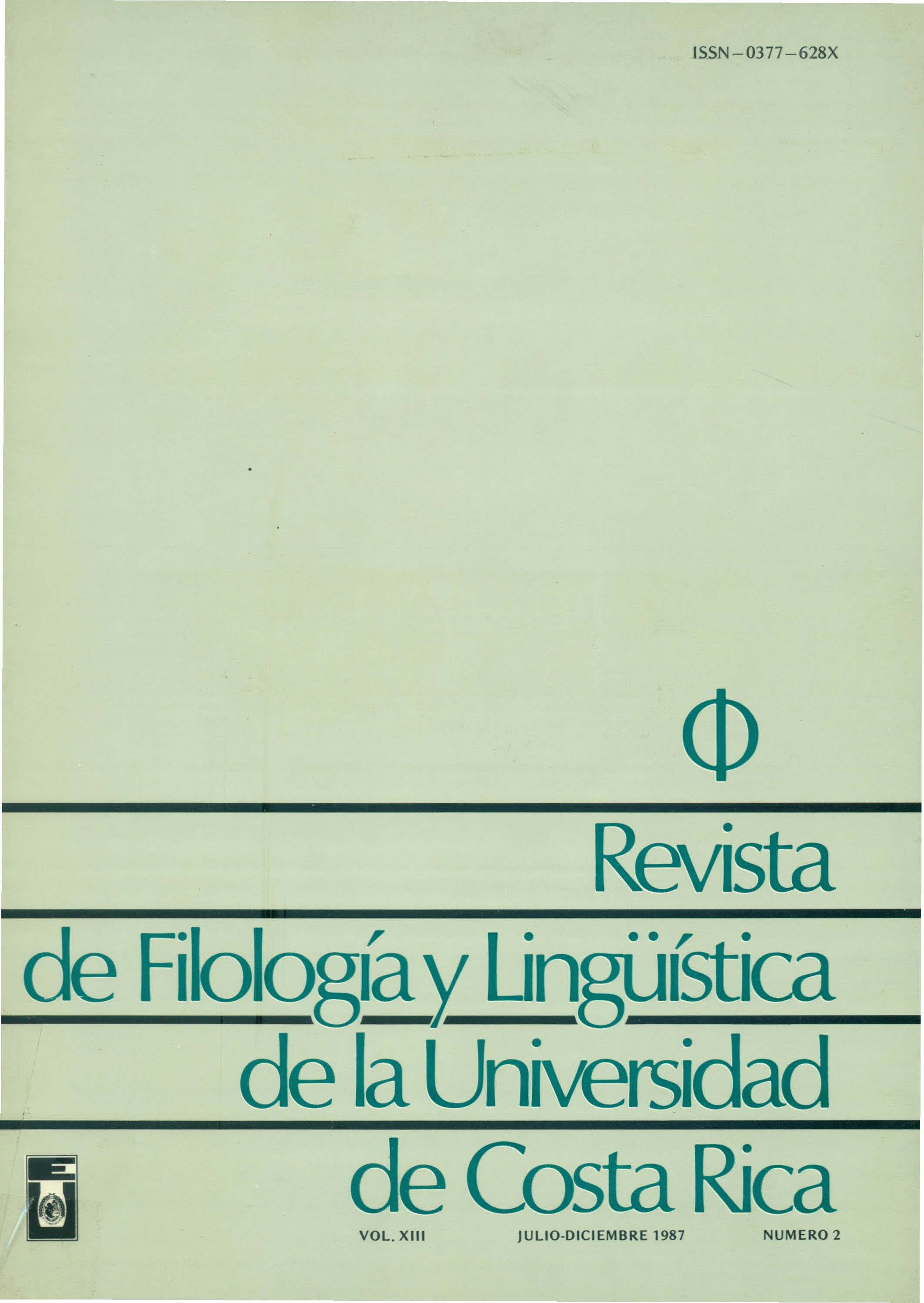Abstract
Desde hace tiempo se sabe que los hablantes nativos de español interpretan la NP que va con el haber "impersonal" como su tema, a pesar de que, al hacerlo, incurren en la ira de prescriptivistas. En lo que sigue, intento mostrar que hay razones sintácticas y semánticas de peso para esta interpretación y que, de hecho, hacer lo contrario sería antinatural.
It has long been known that native speakers of Spanish interpret the NP that goes with the "impersonal" haber as its subject, even though by so doing they incur the wrath of prescriptivists. In what follows, I attempt to show that there are compelling syntactic and semantic reasons for this interpretation and that, in fact, to do otherwise would be unnatural.
Literaturhinweise
AGUERO, Arturo (1962). El español de América y Costa Rica. San José: Antonio Lehmann.
BELLO, Andrés (1964). Gramática de la lengua castellana. Buenos Aires: Editorial Sopena Argentina, S. A. El Poema del Mío Cid (1966). Madrid: Espasa-Calpe, S. A. Clásicos Castellanos).
GILI GAYA, Samuel (1964). Curso superior de sintaxis española. Barcelona: Bibliograf, S. A.
KANY, Charles (1951). American Spanish Syntax. Chicago: University of Chicago Press.
LAPESA, Rafael (1959). Historia de la lengua española. Madrid: Escelicer, S. A.
VALDES, Juan (1969). Diálogo de la lengua. Madrid: Espasa-Calpe, S. A. (Clásicos Castellanos).

